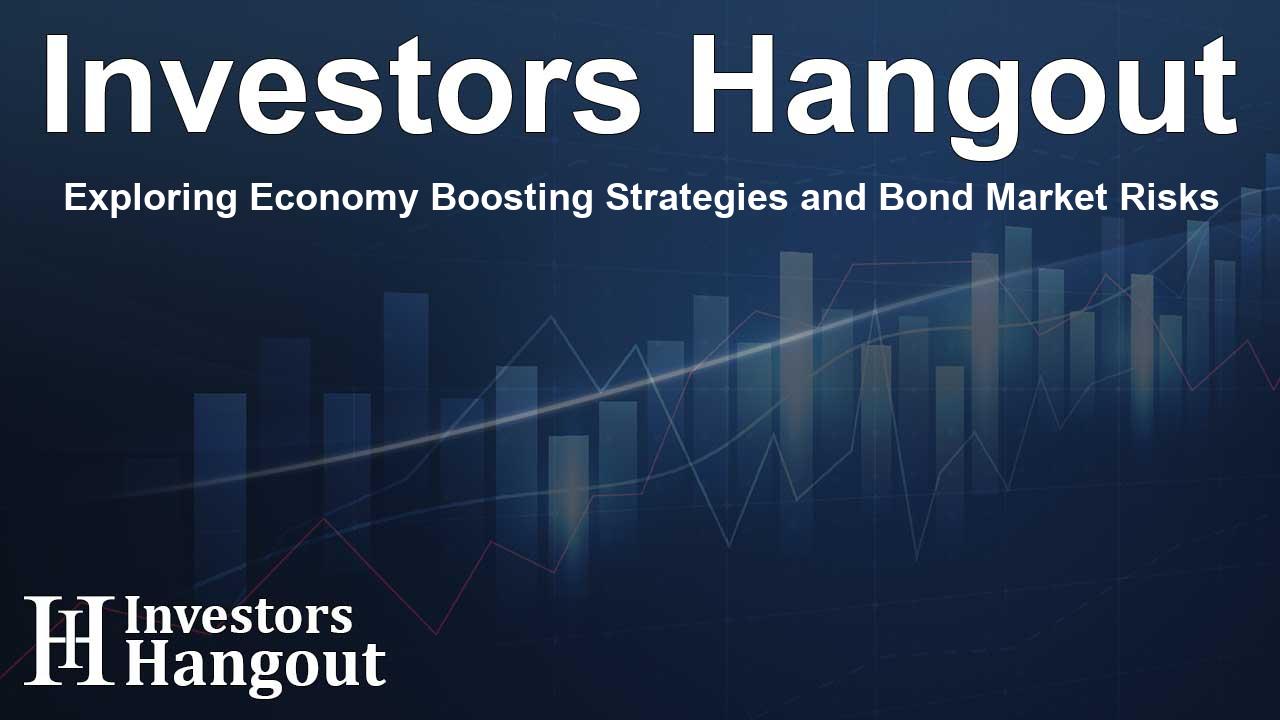Exploring Economy Boosting Strategies and Bond Market Risks

Understanding the 'Run It Hot' Economic Strategy
Trump's vision for the economy centers around a bold plan to stimulate growth aimed at alleviating national debt. This approach, known as 'Run It Hot', raises essential questions about its effects on financial markets.
Key Components of the Economic Plan
The proposed strategies include several crucial elements designed to invigorate the economy over the next year:
Implementation of Tariffs
In an effort to enhance revenue from tariffs, there are plans to announce significant increases by August. This tactic is anticipated to boost customs inflows by negotiating deals ahead of finalizing the higher rates.
Fiscal Initiatives
As the start of the fiscal year approaches in October, another tax bill may be presented, framed to appear budget-neutral by leveraging anticipated tariff revenue.
Interest Rate Dynamics
There is a clear intention to apply pressure on the Federal Reserve, possibly ushering in a new, more amenable chairperson expected to adopt a less aggressive stance on interest rate hikes.
Projecting Economic Outcomes
Implementing the 'Run It Hot' strategy aims to sustain satisfactory real growth rates. While tariffs may slightly dampen consumer spending, an influx of fiscal support is projected to help maintain overall spending levels for consumers and investment for businesses.
Nominal growth could experience an uptick, potentially reaching 4-5% as inflation remains impacted by the ongoing tariff policies and fiscal measures.
The Implications for the Bond Market
While short-term debt issuance may help keep interest expenses manageable, there are significant risks associated with this approach. Historically, the 'Run It Hot' methodology has been applied during periods when inflation was contained, and there was a general absence of aggressive tariff imposition or attacks on the independence of the Federal Reserve.
This time around, the landscape appears distinctly different. The long-end of the US bond market may react more vigorously, leading to potential volatility.
Possible Market Reactions
The question remains: what will be the market reactions to this economic policy? Investors are keenly observing as the administration's tactics unfold.
Frequently Asked Questions
What does Trump’s 'Run It Hot' strategy entail?
The strategy involves stimulating economic growth through tariffs, fiscal changes, and influencing interest rates, with the goal of managing debt effectively.
How might tariffs impact consumer spending?
While tariffs could suppress some consumer spending initially, fiscal stimulus is intended to offset these effects and maintain purchasing power.
What are the historical precedents for this approach?
Similar 'Run It Hot' policies were enacted in the early 2000s and post-2008 financial crisis, aiming to recover from economic downturns.
What risks does this strategy pose to the bond market?
There is a significant risk of a negative market reaction, especially if inflation remains elevated and investor confidence wanes regarding Fed independence.
What might investors anticipate moving forward?
Investors are likely to monitor the unfolding economic policies closely, especially regarding their potential impact on growth and bond market stability.
About The Author
Contact Evelyn Baker privately here. Or send an email with ATTN: Evelyn Baker as the subject to contact@investorshangout.com.
About Investors Hangout
Investors Hangout is a leading online stock forum for financial discussion and learning, offering a wide range of free tools and resources. It draws in traders of all levels, who exchange market knowledge, investigate trading tactics, and keep an eye on industry developments in real time. Featuring financial articles, stock message boards, quotes, charts, company profiles, and live news updates. Through cooperative learning and a wealth of informational resources, it helps users from novices creating their first portfolios to experts honing their techniques. Join Investors Hangout today: https://investorshangout.com/
The content of this article is based on factual, publicly available information and does not represent legal, financial, or investment advice. Investors Hangout does not offer financial advice, and the author is not a licensed financial advisor. Consult a qualified advisor before making any financial or investment decisions based on this article. This article should not be considered advice to purchase, sell, or hold any securities or other investments. If any of the material provided here is inaccurate, please contact us for corrections.
